🤔 The Complete Guide to Automated Pre-Roll Joint Rolling Machine Consumables (RollPros™ Blackbird Compatible) ❓

If you're operating a RollPros™ Blackbird or considering automated pre-roll production, understanding your consumables is absolutely critical to success. 💡 With the pre-roll market exploding to over $4.1 billion in annual sales and growing at double digits year-over-year, choosing the right rolling paper bobbins, filter tips, and glass tips can make or break your operation. 📊
These consumables aren't just supplies—they're the foundation of product quality, brand reputation, and profitability. 🌟 In this comprehensive guide, we'll break down everything you need to know about custom rolling paper bobbins, custom filter tips, and custom glass tips for automated pre-roll production. Whether you're scaling from tabletop to industrial or launching a premium brand, this guide will help you make informed decisions about the consumables that directly impact your bottom line. 💰
📑 Table of Contents
- 🔍 Understanding Automated Pre-Roll Machine Consumables
- 🦅 The RollPros™ Blackbird Machine: Revolutionary Rolling Technology
- 🗞️ Custom Rolling Paper Bobbins: Your Foundation for Quality
- 🎯 Custom Filter Tips: From Basic to Premium
- 💎 Custom Glass Tips: The Ultimate Premium Upgrade
- 📋 Quality Standards and Compatibility Requirements
- 💰 Maximizing ROI with Quality Consumables
- 🛠️ Common Challenges and Best Practices
- 🎯 Conclusion: Your Consumables Define Your Brand
🔍 Understanding Automated Pre-Roll Machine Consumables 🎯
Automated Pre-Roll Joint Rolling Machine Consumables represent the essential materials that feed into your production system to create finished pre-rolls. Unlike traditional hand-rolling supplies, these consumables are specifically engineered for high-volume automated production, where consistency, compatibility, and quality become non-negotiable. ⚙️
What Makes Automated Consumables Different? 🤔
The shift from manual to automated production fundamentally changes what you need from your consumables. Traditional rolling papers come in small booklets of 32-50 sheets—perfectly fine for personal use, but completely impractical when you're producing thousands of pre-rolls daily. That's where specialized consumables come in. 🚀
The three core consumable categories are:
📜 Custom Rolling Paper Bobbins are massive continuous rolls containing 2,000 to 5,000 meters of paper—enough to produce approximately 45,000 pre-rolls from a single bobbin. These industrial-format papers are the raw material that automated machines like the Blackbird use to actually construct pre-rolls, offering dramatic space and cost savings compared to pre-formed cones. 💪
🛡️ Custom Filter Tips serve as the mouthpiece and structural foundation for your pre-rolls, preventing loose cannabis particles from reaching consumers' mouths while providing support that prevents the joint from collapsing. Available in materials ranging from basic paper to premium wood and ceramic, filter tips can be customized with your branding to reinforce brand identity with every puff. 🎨
💎 Custom Glass Tips represent the premium tier of filter options, offering superior smoke cooling, pure flavor preservation, infinite reusability, and luxury aesthetics that justify premium pricing. These borosilicate glass mouthpieces have become the hallmark of high-end pre-roll brands and craft cannagar producers. ✨
Why Consumables Matter to Your Bottom Line 💰
Your choice of consumables directly impacts multiple critical business factors:
🏆 Product quality starts with the materials—premium papers with straight gum-lines produce even burns without canoeing, while quality filters ensure consistent draw resistance and particle blocking. Poor consumables create inconsistent experiences that damage brand reputation and reduce customer loyalty.
✅ Regulatory compliance is another crucial consideration. States like New York now require final-form testing, meaning your entire pre-roll including the paper and filter must pass contamination testing. One batch of contaminated papers can cause your entire production run to fail testing, destroying thousands of dollars in cannabis and potentially triggering regulatory penalties. Quality consumables with proper certifications (FSC, food-grade standards) provide peace of mind and compliance assurance. 📝
⚡ Production efficiency suffers dramatically with poor consumables. Inconsistent paper dimensions cause machine jams and increase reject rates. Low-quality filters feed improperly through hoppers, creating bottlenecks. The Blackbird and other automated systems are engineered to precise specifications—using incompatible or low-quality consumables can turn a $225,000 machine into an expensive paperweight. 😰
🌟 Brand differentiation increasingly depends on consumables. With over 15,000 new pre-roll products entering the market in 2024 alone, your paper type, custom printing, filter style, and premium touches like glass tips communicate your brand positioning before consumers even take their first puff. 🚬
🦅 The RollPros™ Blackbird Machine: Revolutionary Rolling Technology 🦅
To understand why consumable selection matters so much, you need to understand what makes the Blackbird different from traditional pre-roll machines. While most automated systems stuff pre-made cones using vibration and tamping, the Blackbird uses patented TruRoll™ radial compaction technology that actually rolls joints rather than filling them. 🎰
How the Blackbird Works ⚙️
The Blackbird operates on a fundamentally different principle than cone-stuffing machines. It draws rolling paper directly from bobbin rolls, precisely cuts each sheet, accurately weighs and deposits ground flower, inserts your chosen filter tip, then uses proprietary radial compaction to roll the joint in a manner that mimics hand-rolling. This produces uniform, even-density pre-rolls with consistent burn characteristics—solving the quality problems inherent in vibration-based cone stuffing. 🔥
The production specifications are impressive. The Blackbird produces 900 pre-rolls per hour (approximately 5,000 per 8-hour shift) with just a single operator. It handles joint weights from 0.35g to 1g (with the XXL model going up to 2.5g), with scale accuracy to 0.01g for regulatory compliance. The compact footprint of 48"H × 41"W × 29"D means it fits through standard doorways, while the 1.5-pound flower hopper can be refilled during operation for continuous production. 📏
Why This Matters for Consumables 🎯
The Blackbird's rolling approach creates specific consumable requirements that differ from cone-filling machines. You need 36mm width × 3,000 meter rolling paper bobbins rather than pre-made cones. The machine accommodates both paper crutches and premium glass tips in diameters from 6mm to 11mm+, automatically feeding them through the crutch delivery system. 🎪
This consumable flexibility provides significant advantages. A single paper bobbin costs a fraction of equivalent pre-made cones and fits on a 2×2 foot shelf compared to the storage room required for 45,000 cones. The cost per unit drops to approximately $0.03 per pre-roll—up to 80% lower than cone-based competitors. Plus, you maintain complete control over paper type, printing, and filter selection, enabling true product differentiation. 💡
Blackbird vs Traditional Cone Stuffing 🥊
Traditional cone-filling machines have several inherent limitations. They require over-dried flower (reducing quality and weight through moisture loss), demand fine grinds that strip trichomes, use vibration that segregates different-density materials creating "hot spots" and weak points, and generate high reject rates from inconsistent filling. The pre-made cones themselves are expensive, require massive storage space, and often have quality inconsistencies. 😕
The Blackbird's advantages are substantial: it works with higher moisture content flower (10-12% vs. over-dried), accepts coarser grinds that preserve trichomes and potency, features adjustable tension control for customizing joint density and airflow, eliminates the need for expensive pre-made cone inventory, and produces superior consistency with true rolling action. Independent surveys show 4 out of 5 consumers prefer compression-rolled pre-rolls to stuffed cones based on burn quality and smoking experience. 🏆
🗞️ Custom Rolling Paper Bobbins: Your Foundation for Quality 🗞️
Rolling paper bobbins are the workhorse consumable for Blackbird production, and understanding their specifications, materials, and customization options is essential for optimal results. 📚
What Are Rolling Paper Bobbins? 🤷
A rolling paper bobbin is a large continuous roll of paper in raw commercial format, typically containing 2,000 to 5,000 meters of material. Unlike consumer rolling papers that come pre-cut in booklets, bobbins are industrial supplies designed exclusively for automated production. The paper hasn't been folded, perforated, or otherwise manipulated beyond the core paper production process—it's ready to feed directly into your machine. 🎬
The economics are compelling. A single 5,000-meter bobbin produces approximately 45,000 pre-rolls and occupies just 2×2 feet of shelf space. The equivalent in pre-made cones would fill an entire storage room, cost up to 80% more, and take 8-10 weeks for overseas shipping. Bobbins can be overnighted from domestic suppliers, dramatically improving supply chain flexibility. 📦
Technical Specifications for Blackbird Compatibility ⚙️
For RollPros™ Blackbird machines, the specifications are precise. You need 36mm width paper—being off by even 1mm can cause feeding failures and production shutdowns. The recommended length is 3,000 meters per bobbin, though some suppliers offer 2,000m or 5,000m options. The paper must have gum applied on one side running the length of the roll, with the gum direction properly oriented for your machine. 🎯
The GSM (grams per square meter) rating indicates paper weight and typically ranges from 12.5 to 14 GSM for ultra-thin rolling papers. Hemp papers usually run 13 GSM, rice papers about 13.5 GSM, and unbleached wood pulp around 12.5 GSM. Consistency is critical—variance should stay within ±2.5% to prevent jams and ensure uniform performance. 📊
Core diameter varies by manufacturer but must match your machine's bobbin holder specifications. The paper must be evenly wound with consistent tension throughout the roll to prevent feeding issues. Edges should be precisely cut with no fraying, and the entire roll must be inspected for tears, holes, or defects that would interrupt production. ✂️
Other widths are available for different machines or product formats: 44mm (King Slim) is popular for larger pre-rolls, while 54mm (European King Size) handles extra-large formats. Always verify compatibility with your specific machine model before ordering. ✅
Paper Material Options: Hemp, Rice, and Wood Pulp 🌿
🌱 Hemp Rolling Papers have become the gold standard for eco-conscious brands. Typically running 13 GSM, hemp papers are made from natural hemp fibers that produce a natural light brown color when unbleached. They offer moderate to slow burn rates, durable construction that handles well in automated systems, and minimal flavor impact with just a slight earthy or sweet undertone. The sustainability story is powerful—hemp requires less water to grow, is naturally pest-resistant reducing pesticide needs, and hemp papers are fully biodegradable and compostable. FSC-certified and organic options are available for brands emphasizing environmental responsibility. 🌍
🍚 Rice Rolling Papers represent the premium tier for flavor purists. At 13.5 GSM, rice papers are ultra-thin and translucent, providing the slowest burn rates and cleanest taste of any paper type. They're nearly flavorless, allowing cannabis terpenes to dominate the experience, and produce minimal ash for a smooth smoking experience. However, rice papers are also the most delicate, making them more challenging for automated machines to handle without tears. They're sensitive to humidity and moisture, requiring careful storage. The thin material may require relighting more often than thicker alternatives. Despite these challenges, rice papers justify premium pricing for connoisseur-grade products. 👑
🌲 Wood Pulp Papers offer the most economical option for high-volume production. Typically 12.5 GSM for unbleached varieties, wood pulp papers are available bleached (white) or unbleached (natural brown). They're affordable, sturdy, and reliable in automated systems, with the most consistent quality and widest availability. The thicker construction handles easily and rarely tears. However, wood pulp papers have faster burn rates than hemp or rice, can impart a slight paper taste that may interfere with cannabis flavors, and have higher environmental impact than hemp alternatives. They're ideal for cost-effective production and high-volume operations where paper cost is a significant factor. 💵
Customization Options for Brand Differentiation 🎨
Modern bobbin manufacturers offer extensive customization to help your brand stand out. Full-color printing with edge-to-edge custom designs is possible, using 100% natural soy-based inks that are safe for smoking. You can add custom watermarks embedded directly in the paper, create distinctive criss-cross or custom patterns for enhanced burn control, and place repeated logo marks along the paper length for continuous branding. 🖨️
Paper color options extend beyond natural browns and whites. Colored papers in black, green, blue, pink, purple, and custom hues are available, with Pantone color matching for precise brand alignment. You can even add custom flavoring to the paper itself through natural flavoring processes that maintain paper integrity and burn characteristics. 🌈
The gum line can be customized with patterns using technologies that create distinctive gum line designs for brand differentiation and anti-counterfeiting protection. All these customizations work within the technical requirements for automated machines—your custom papers still need precise 36mm width, proper GSM, and consistent quality to feed reliably through the Blackbird system. ✨
Quality Standards and Best Practices 🏆
Premium bobbins should carry FSC certification for sustainably sourced materials and meet FDA/EU food contact standards for safety. The gum should be 100% natural Arabic gum from acacia trees, applied with consistent width and placement. Any inks must be soy-based and toxin-free, safe for direct combustion and inhalation. 🔬
Manufacturing process quality includes proper fiber selection from certified sources, precise paper formation with specific fiber orientation for optimal strength, controlled drying and pressing to exact specifications, and quality-controlled gum application. The paper must go through proper settling time (24+ hours for gummed papers), then precise slitting to the required width with controlled tension winding. 🏭
Storage and handling significantly impact performance. Bobbins should arrive in moisture barrier packaging with low water vapor transmission rates. Store in climate-controlled environments at approximately 73°F with 50% relative humidity. Keep wrapped until use to maintain proper moisture levels, and rotate stock using FIFO (first in, first out) methods to ensure freshness. 📦
Before large orders, always test samples on your actual machine. Run full production cycles to identify any compatibility issues, monitor jam rates, paper tears, and feeding problems, and evaluate final pre-roll quality including burn characteristics and customer feedback. A $50 sample investment can prevent a $50,000 mistake in unusable inventory. 💡
🎯 Custom Filter Tips: From Basic to Premium 🎯
Filter tips—also called crutches or roaches—are essential components that serve as the mouthpiece and structural support for pre-rolls. Your choice of filter type directly impacts user experience, brand perception, and production efficiency. 🚀
The Purpose and Importance of Filter Tips 🛡️
Filter tips perform multiple critical functions. They act as a structural support that prevents the pre-roll end from collapsing or getting soggy during use. They create a particle barrier that stops loose cannabis (the dreaded "Scooby Snacks") from entering the consumer's mouth. They enable full consumption by allowing users to smoke the entire pre-roll without burning their fingers. And they provide a cleaner experience by reducing resin buildup on lips and creating consistent airflow throughout the smoking session. 💨
In modern pre-roll production, filter tips are no longer optional—they're an expected standard feature. Dispensary buyers and consumers alike consider pre-rolls without filters to be low-quality or outdated products. The filter is also prime real estate for branding, with custom printing on paper tips or engraving on premium materials reinforcing brand identity with every use. 🏷️
Paper Filter Tips: The Economical Foundation 📄
📐 W-Tips (also called accordion or zigzag tips) are the most common and affordable option. Made from thick paper or cardboard with perforated strips that fold into a "W" or "M" shape, they're typically 26mm in length (21mm also available). W-tips prevent lip burning and provide basic particle blocking at rock-bottom cost, making them ideal for high-volume production. They're widely available, easy for machines to handle, and consumers are familiar with the format. However, W-tips provide minimal actual filtration and can soften or collapse when moistened during group sessions. 💧
🌀 Spiral Paper Tips offer improved performance while maintaining affordability. Available in 26mm standard length or longer formats, these tips feature a spiral or rolled design that provides better particle blockage than W-tips, offers more firmness at the joint's base, creates a cooler and more stylish appearance, and performs better under moisture exposure. They represent an easy upgrade from W-tips with minimal cost increase, providing noticeably better user experience while maintaining compatibility with automated feeding systems. 🔄
Premium Filter Options: Wood, Charcoal, and Ceramic 🌟
🪵 Wood Filter Tips bring natural luxury to pre-rolls. Made from hardwoods like American Birch, bamboo, cedar, or oak, they're available in 8.5mm, 9.6mm, and 11mm diameters with custom sizes available. Wood tips create a smaller air cavity that provides a smoother draw, cool smoke more effectively than paper, don't interfere with cannabis flavor profiles, add luxurious weight and feel to the pre-roll, and are biodegradable and sustainable. Premium options include vanilla or sugar-infused flavoring, and they're reusable with proper cleaning (warm soapy water or isopropyl alcohol, 15-30 minute soak maximum). ♻️
⚫ Activated Charcoal Tips provide specialty filtration using coconut husk-activated charcoal with millions of microscopic pores. Available in 6mm (slim), 7mm (standard), and extra-slim options, these tips remove non-polar carcinogens and tar, reduce polycyclic aromatic hydrocarbons (PAHs), filter carbonyl compounds, and block 40% more free radicals compared to non-charcoal filters. The technology works through molecular adsorption, though some THC loss occurs due to molecular weight and polarity. These tips appeal to health-conscious consumers willing to accept minor potency reduction for cleaner smoke. 🧪
🏺 Ceramic Filter Tips occupy the ultra-premium tier. Made from high-quality ceramic with built-in screens, they offer exceptional smoke cooling (superior even to glass), pure and unaltered flavor preservation, smooth luxurious mouthfeel, built-in particle screening, and reusable easy-clean design. Available in round cylinder shapes and molded ergonomic designs, with colors including black, white, red, purple, and green. While expensive, ceramic tips signal ultimate quality and are fully compatible with automated machines including the Blackbird. 💎
Specifications for Automated Machine Compatibility 🤖
For RollPros™ Blackbird compatibility, the machine accepts paper crutches (S-shape, W-shape), glass tips, wood tips, and ceramic tips through its automated filter hopper system. The system is adjustable for different filter sizes from 6mm "dogwalkers" to 11mm+ standard sizes, feeding 2 filters simultaneously to match the dual-joint production. ⚙️
Standard dimensions across the industry include 26mm length for paper tips (21mm alternative available), and diameter ranges of 6-8mm for slim filters (tighter draw), 9-11mm for standard filters (most common), and 10-12mm for wide filters (more airflow, cooler smoke). The key compatibility factors are consistent dimensions (±0.1mm tolerance typical), material stiffness affecting feed reliability, and proper hopper design in your machine. 📏
For optimal performance, confirm your machine's exact specifications before ordering bulk filters. Test sample batches through complete production cycles, monitoring feed reliability, insertion accuracy, and final product quality. Material choice affects machine performance—stiffer materials like wood feed differently than flexible paper, requiring potential adjustment of feeding mechanisms or speeds. 🔧
Custom Branding and Design Options 🎨
🖨️ Printing and Logos: Paper filter tips can be printed with logos directly on the filter surface, with up to 2 colors for ceramic filters and full-color options for paper. Both sides of paper filters can be branded, and many suppliers offer free artwork mock-ups to preview designs before ordering. Ceramic and glass tips can be laser engraved for permanent, wear-resistant branding. ✍️
🌈 Color Customization: Choose from wide selections of stock colors, or opt for Pantone color matching for precise brand alignment. You can implement strain color-coding systems (blue for indica, green for sativa, purple for hybrid, etc.) to help consumers navigate your product line. 🎨
🔷 Shape Options: Beyond standard W-tips and spirals, options include artistic or novelty designs (cannabis leaf patterns, etc.), business card format (multiple tips per card—3, 5, or 6 tips), and custom perforated patterns. Glass and ceramic tips come in flat mouth (ergonomic), cylinder (standard), cone (external use), bullet-shaped, and custom molded forms. 🎭
📦 Packaging: Retail-ready options include flip-top boxes, mylar bags (100-pack typical), tower boxes, rolling paper booklets with integrated tips, display-ready packaging, and bulk cases (50-1100 units). All can be customized with your branding for cohesive brand presentation. 🎁
💎 Custom Glass Tips: The Ultimate Premium Upgrade 💎
Glass tips represent the pinnacle of pre-roll consumables, transforming a standard joint into a luxury experience that justifies premium pricing and builds brand loyalty among discerning consumers. ✨
Why Glass Tips Command Premium Positioning 👑
Glass tips signal quality instantly. Their weight, appearance, and reusability communicate luxury before the consumer even lights up. For brands positioning in the premium segment, glass tips are non-negotiable—they're the physical manifestation of craftsmanship and attention to detail that separates connoisseur products from commodity pre-rolls. 🏆
The functional advantages are substantial. ❄️ Superior smoke cooling occurs because glass is a poor heat conductor, absorbing heat from hot smoke as it passes through the tip. This creates noticeably cooler hits than paper filters, enabling bigger inhalations without harshness. Even when smoked down to the filter, the glass doesn't heat up uncomfortably.
👅 Pure flavor preservation is another key benefit. Glass is completely neutral, causing zero flavor interference that might mask subtle terpene profiles. There are no chemical interactions with cannabis compounds and no off-gassing or contamination. This allows the full terpene complexity of premium strains to shine through, making glass tips especially popular for craft cultivar pre-rolls where flavor is paramount. 🌿
♻️ Reusability and sustainability provide both economic and environmental advantages. Glass tips can be used infinitely with proper cleaning, reducing single-use waste significantly. While the initial cost is higher than paper, the long-term value for consumers is substantial—one glass tip can last years. For brands, this creates an ongoing touchpoint as consumers continue using your branded glass tip long after the pre-roll is consumed. 🌍
💪 Durability and consistency mean glass tips maintain their shape and performance indefinitely. They never soften or degrade from moisture, resist resin buildup relative to paper, perform consistently every session, and maintain professional appearance even after extensive use. For group sessions where pre-rolls get passed around, glass tips remain pristine while paper filters would become soggy messes. 🎉
Glass Tip Styles and Specifications 🔍
😊 Flat Mouth Glass Tips feature an ergonomic design with a flattened mouthpiece that rests comfortably between lips. Common sizes include 9mm and 10mm diameter by approximately 29mm length. Available in multiple colors and typically sold in cases of 100, these tips work excellently for premium hand-rolled joints, cannagar production, cigar rolling machines, and as standalone accessories for existing pre-rolls. 🎯
🔘 Cylinder Glass Tips are the most versatile and common style, featuring a simple cylindrical shape often with an internal twist or X-shape for particle blocking. Available in 8mm, 9mm, 10mm, and 11mm diameters with lengths of 25-32mm typical, cylinder tips offer clean minimalist aesthetics compatible with all standard joint formats. They're the default option for automated machines, can be rolled into paper during hand-rolling, and easily insert into the crutch end of pre-rolls post-production. 🎪
🔺 Cone Shape Glass Tips function differently—they're designed for external use, slipping over the joint end rather than being rolled inside. With wider openings (typically 12mm+ diameter) and tapered design, cone tips are quick add-ons that upgrade any joint, making them perfect for retail accessory sales, promotional items, and giving consumers the option to upgrade purchased pre-rolls. 🎁
🚀 Bullet Shape Glass Tips feature a distinctive bullet or torpedo shape with built-in X-shape particle blockers, completely smooth exterior sides, and unique eye-catching design. Common sizing is 9mm × 32mm. These premium tips differentiate visually from standard cylinders, making them excellent for brand distinction and flagship product lines. 💫
Customization and Branding for Glass Tips 🎨
🌈 Color options range from classic clear/transparent to the popular black (most common premium option), plus white/frosted, amber/brown, and various custom hues. You can implement brand color matching with Pantone coordination, order multiple colors per batch for strain-specific coding, create limited edition colorways for special releases, or use color to create visual product hierarchy within your line. 🎨
✍️ Engraving and etching provide permanent branding. Laser etching offers precision for company logos, brand names, strain names, serial numbers/batch codes, and artistic designs. The engraving is durable and won't wear off, unlike printing. Some manufacturers offer innovative internal branding where the logo or design is visible inside the glass tip using suspended printing techniques—this creates a unique visual effect while protecting the branding from wear. 🔐
📦 Packaging can be customized with branded display boxes, individual protective tubes for premium presentation, tower box formats for retail display, custom retail packaging with full-color printing, and integration into gift sets. For bulk orders, options include cases of 50-100 units with custom carton printing and private label capabilities. 🎁
📐 Size and specification customization is available for larger orders: custom diameters, specific lengths, wall thickness variations, and internal bore specifications can all be tailored to your exact requirements. However, custom specifications typically require higher MOQs (minimum order quantities) and longer lead times than stock sizes. ⏰
Compatibility with the Blackbird and Other Automated Systems ✅
Glass tips are fully compatible with the RollPros™ Blackbird system with no machine modifications required. You simply pour glass tips into the filter hopper, adjust the machine for the appropriate size, and the TruRoll™ technology rolls the paper around the glass tip just as it would with a paper filter. The banding mechanism can secure glass tips for additional stability. 🎯
The Blackbird XXL model specifically accommodates larger formats (1.25-2.5g blunts) with glass tips and includes a premium banding option. Production output with glass tips matches paper filter speeds—900 per hour standard, 5,000 per 8-hour shift typical. ⚡
For cigar rolling machines (metal, wooden, and value rollers), glass tips work well with flat mouth and cylinder styles. These manual/semi-automated rollers can incorporate glass tips directly during the rolling process, making them popular for craft producers and cannagar manufacturers. 🎪
Cone-filling machines have limitations since they're designed for pre-formed cones. Glass tips must either be pre-installed in the cones before filling, or added as post-production external cone-style tips. This is less seamless than the Blackbird's integrated approach but still viable for operations with existing cone-filling equipment. 📦
For hand-rolling integration, glass tips can be rolled directly into paper by placing the tip at the filter end before rolling, licking the paper, and pressing it to the glass to create a seal. This provides a sturdy base that makes hand-rolling easier while delivering all the benefits of glass tips. Many craft producers use this technique for artisanal products and premium cannagars. 🖐️
Quality Considerations and Care 🧼
🔬 Borosilicate glass is the premium standard, offering superior heat resistance, excellent durability, thermal shock resistance, low coefficient of thermal expansion, and long-term reliability. Standard glass is available at lower cost but is less heat resistant and more prone to breaking. For quality products, borosilicate is non-negotiable. 💎
Quality indicators include smooth polished edges with no sharp points or roughness, consistent wall thickness throughout, clear or consistent coloring without streaks, and no bubbles or imperfections in the glass. Manufacturing should include proper tempering for increased strength and annealing (stress relief) to prevent spontaneous cracking. ✅
🧽 Cleaning and maintenance is straightforward. The most effective method is isopropyl alcohol (70-90%) with salt as an abrasive agent. Place the glass tip in a sealable bag or container with alcohol and salt, shake vigorously for 1-2 minutes, or allow overnight soaking for heavy buildup. Use Q-tips for interior cleaning if needed, rinse thoroughly with warm water, and air dry completely before reuse. Avoid harsh chemical cleaners or abrasive scrubbing tools that might scratch the glass. Regular cleaning prevents resin buildup that can restrict airflow and affect performance. 🧪
Proper glass tip care ensures unlimited reuse potential with no degradation in performance or appearance. This reusability is a key selling point—consumers who invest in pre-rolls with glass tips often become repeat customers, returning the glass tips for discounts on future purchases or keeping them as permanent accessories. Some brands have built entire loyalty programs around branded glass tip collection and reuse. 🔄
📋 Quality Standards and Compatibility Requirements 📋
Understanding industry quality standards and machine compatibility requirements is essential for avoiding costly mistakes and ensuring consistent production. 🎯
Industry Quality Certifications 🏆
Premium consumables should carry specific certifications. FSC (Forest Stewardship Council) certification verifies sustainably sourced paper products. FDA/EU food contact standards ensure materials are safe for direct mouth contact. ISO certifications (ISO 9001, ISO 9000, ISO 22000) indicate quality management systems and food-safe production processes. GOTS (Global Organic Textile Standard) applies to organic materials like organic hemp papers. ✅
For safety, all papers should undergo heavy metals testing, microbial/mold testing, pesticide residue testing, and filth and foreign material testing. In states like New York, these tests are required for the final pre-roll including the paper—contaminated papers can cause entire batches to fail even if the cannabis itself is clean. 🔬
Paper Quality Specifications 📄
Premium papers maintain GSM consistency within ±2.5% variance, with rejections for greater variance. Thickness (caliper) should have ±5% variance maximum within sheets, measured in microns. The paper should use premium fibers from sustainable certified sources, with certified organic options available for hemp and wood pulp. 🌿
Gum quality is critical. Use 100% natural Arabic gum from acacia trees, preferably sourced from non-conflict zones. The gum should be water-based processed at 65°C with minimal additives, properly dried for 24+ hours before rolling and packing, and applied with consistent width and placement. Any printing should use 100% natural soy-based inks that are safe for smoking, fade-resistant, and compliant with food-safe standards. 🖨️
Machine Compatibility Factors ⚙️
For the Blackbird and other automated systems, precise specifications are mandatory. Paper width must match exactly—being off by even 1mm can cause failures. Proper glue application with consistent gum line placement and width is essential. The roll must have consistent tension throughout the bobbin with no loose or tight spots. GSM variance must stay within ±5% maximum to prevent jams. 🎯
The paper must be continuous with no tears or defects that would interrupt production. Edges must be precisely cut for smooth machine feeding. Proper moisture content must be maintained during storage and shipping—papers are highly sensitive to humidity changes. Always verify compatibility with your specific machine before bulk orders, and test sample runs thoroughly before committing to large purchases. ✅
Filter Quality Requirements 🛡️
Filters must have consistent dimensions (±0.1mm tolerance typical) for reliable automated feeding. For paper filters, proper stiffness is needed—too soft and they collapse, too stiff and they don't fold correctly. The material should be biodegradable and natural for environmental compliance. Food-grade materials are required for any substance contacting smoke or consumers' mouths. 🌱
For premium filters (wood, glass, ceramic), heat resistance is critical to prevent burns or breakage. Smooth edges with no sharp points ensure consumer safety. Proper sizing prevents swallowing hazards. Glass should be borosilicate for durability and thermal shock resistance. 💎
Storage and Handling Best Practices 📦
Paper bobbins require climate-controlled storage at approximately 73°F with 50% relative humidity. Keep sealed in moisture barrier packaging until use. Protect from direct sunlight which can degrade materials. Rotate stock using FIFO methods. Handle carefully to prevent damage to delicate paper. 🌡️
Filter tips should be stored in cool, dry conditions protected from humidity. Keep sealed until use to maintain material integrity. For activated charcoal filters, airtight packaging is essential to prevent contamination and maintain effectiveness. Proper labeling and lot tracking enable quick identification of any quality issues. 🏷️
💰 Maximizing ROI with Quality Consumables 💰
The economics of consumable selection have major impact on profitability, and the data strongly favors investing in quality materials. 📊
The True Cost of Cheap Consumables 💸
Many operators make the mistake of choosing consumables based solely on purchase price, but this penny-wise approach often proves pound-foolish. Cheap consumables create higher reject rates—low-quality papers and filters increase production failures from 2% (industry best practice) to 10% or more. At $5 per gram of cannabis, that 8% difference represents $2.08 million in waste annually for a producer making 5.2 million pre-rolls per year. 😱
Compliance failures are catastrophic. One batch of contaminated papers can destroy an entire production run. In states requiring final-form testing like New York, your cannabis might be perfectly clean but still fail testing because of contaminated papers or filters. This means 100% product loss plus testing costs, potential regulatory fines, and delayed market entry. 🚫
Machine downtime multiplies costs. Poor-quality consumables cause jams requiring extra cleaning, production stops for troubleshooting, and increased wear on machine components requiring more frequent maintenance. If your $225,000 Blackbird sits idle 10% of the time due to consumable issues, you're losing $22,500 in equipment value plus lost production revenue. 😰
Brand reputation damage is the most expensive long-term cost. Pre-rolls that canoe, don't draw properly, or have harsh taste create one-time customers instead of loyal repeat buyers. In a market where customer acquisition costs continue rising and competition intensifies, losing customers to quality issues is a death sentence for emerging brands. ☠️
The ROI of Premium Consumables 📈
Quality consumables cost 10-20% more per unit but deliver 200-300% ROI through multiple mechanisms. Reduced reject rates from 10% down to 2% save massive amounts of cannabis. Compliance assurance avoids batch failures that destroy thousands of dollars in product. Machine reliability improves dramatically with proper consumables, increasing uptime and reducing maintenance costs. 🚀
Customer retention increases substantially. Consistent, quality pre-rolls build trust and repeat purchases. Studies show 30% higher customer retention for brands known for consistent quality. Over a customer's lifetime value, this retention difference can mean hundreds or thousands of dollars per acquired customer. 💚
Premium pricing becomes justifiable. Pre-rolls made with premium papers, custom printing, and glass tips can command 20-50% price premiums over commodity products. In a market experiencing price compression, the ability to maintain premium pricing through quality differentiation is invaluable. 💵
Cost Analysis Example 🧮
Consider a mid-sized producer making 100,000 pre-rolls monthly:
😢 Cheap Consumables Path:
- Consumable cost: $8,000/month (papers, filters)
- Reject rate: 10% = 10,000 units lost
- Cannabis waste: 10,000 × $5 = $50,000/month
- Machine downtime: 10% = lost production
- Customer complaints: High, reducing repeat purchases
- Total monthly cost: $58,000+ in consumables and waste
😊 Premium Consumables Path:
- Consumable cost: $10,000/month (+$2,000)
- Reject rate: 2% = 2,000 units lost
- Cannabis waste: 2,000 × $5 = $10,000/month
- Machine downtime: 2% = minimal impact
- Customer satisfaction: High, strong repeat purchases
- Total monthly cost: $20,000 in consumables and waste
🎉 Net advantage: $38,000/month savings by spending $2,000 more on quality consumables—that's a 1,900% ROI on the consumable investment. 🚀
Long-Term Strategic Value 🎯
Beyond immediate cost savings, quality consumables provide strategic advantages. They enable market differentiation in a crowded field where 15,000+ new pre-roll products launched in 2024 alone. They support premium brand positioning that insulates from price compression affecting commodity producers. They create barriers to competition as cheaper brands can't match your consistent quality. 🏆
Quality consumables also provide scalability with maintained quality. As you grow from 100,000 to 500,000 to 1 million+ pre-rolls monthly, quality consumables ensure your brand reputation scales with your volume. Brands that try to scale on cheap consumables often face quality collapse that stalls growth. 📈
🛠️ Common Challenges and Best Practices 🛠️
Even with quality consumables and equipment, automated pre-roll production presents challenges. Understanding these common issues and their solutions helps you avoid costly mistakes. 💡
Challenge: Inconsistent Product Quality 😕
Symptoms: Pre-rolls that canoe (burn unevenly on one side), loose or overly tight packs, inconsistent potency throughout the pre-roll, and poor draw or airflow. 🔥
Root Causes: Using cone-stuffing instead of compression rolling, over-dried flower required by vibration-based systems, inconsistent grind particle size, vibration-based packing that segregates trichomes to the bottom, and poor-quality papers with crooked gum lines. 🎯
Solutions: Use compression rolling technology like the Blackbird's TruRoll™ system that actually rolls rather than stuffing cones. Maintain proper moisture levels (10-12% for Blackbird vs. over-dried for competitors). Ensure consistent grind particle size through industrial grinding and sifting. Avoid vibration-based packing that segregates materials. Use quality papers with straight gum lines that promote even burning. ✅
Challenge: Material Handling Issues 🌿
Symptoms: Sticky flower gumming up equipment, trichome degradation reducing potency, material waste during filling, and inconsistent material flow through hoppers. 😰
Root Causes: Production environment not climate-controlled, freshly ground flower with surface oils, use of inappropriate filling systems (feed screws/augers), stems and large particles creating blockages, and inadequate cleaning between different strains. 🌡️
Solutions: Maintain climate-controlled production environment to prevent excess resin stickiness. Let ground flower rest for a few hours so surface oils re-absorb into the material. Use appropriate filling systems—the Blackbird's scale and rotating tumbler design handles sticky cannabis far better than feed screw systems. Properly sift material to remove stems and oversized particles. Implement thorough cleaning schedules between strain changes. 🧹
Challenge: Production Bottlenecks ⏱️
Symptoms: Closing/twisting is the slowest step and creates backups, strain changeovers cause extended downtime, quality inspection slows final output, and theoretical production speeds aren't achieved in practice. 🐌
Root Causes: Manual closing processes that can't keep pace with filling, extended cleaning required between products, lack of integrated quality control, and focusing on filling speed without considering full cycle time. 🔄
Solutions: Invest in machines with automated closing mechanisms (Dutch crown closers, twist mechanisms). Use modular systems with swappable components that reduce changeover time. Implement integrated quality control with automated weight checks and vision systems. Remember—more filling holes doesn't necessarily mean faster production if closing is the bottleneck. Consider full cycle time including finishing steps when evaluating equipment. ⚡
Challenge: Compliance and Testing Failures 🚫
Symptoms: Batches failing state testing even when cannabis is clean, weight inconsistencies triggering regulatory flags, inadequate documentation for audits, and recalls due to contamination. 📋
Root Causes: Contaminated papers or filters, inconsistent weighing systems, poor record-keeping, and lack of traceability from material to finished product. 🔬
Solutions: Source lab-tested consumables with certificates of analysis (COAs). Implement automated weighing systems with tight tolerances (±0.03g or better). Use integrated rejection systems that automatically remove non-compliant units. Maintain digital tracking for seed-to-sale compliance. Document SOPs for every production step and train staff thoroughly. In states with final-form testing requirements, factor consumable quality into your compliance strategy from day one. ✅
Challenge: High Reject Rates 📉
Symptoms: Significant material waste from defective pre-rolls, excessive labor costs for manual inspection, profit margin erosion, and difficulty maintaining production schedules. 💸
Root Causes: Poor material preparation, equipment not properly calibrated, incompatible consumables, lack of quality control checkpoints, and inadequate staff training. 🎯
Solutions: Target under 2% reject rate as industry best practice. Implement automated inspection systems for weight, visual inspection, and density verification. Ensure proper material preparation with correct moisture content and grind consistency. Choose quality machines with proven track records and low reject rates. Maintain regular calibration schedules. Train staff thoroughly on proper operation and troubleshooting. 🏆
Best Practices for Optimal Production ✨
🌿 Material Preparation Excellence: Maintain flower at 10-12% moisture content (Blackbird optimal range). Use industrial grinders with consistent torque and low RPM to preserve trichomes. Sift ground material to achieve uniform 2-5mm particle size, removing stems. Store prepared material in climate-controlled conditions and let it rest for 2-4 hours after grinding before production.
📋 Standard Operating Procedures (SOPs): Document every step from raw material receipt to finished product packaging. Create specific SOPs for strain changeovers including cleaning protocols. Establish regular equipment calibration schedules (daily, weekly, monthly checks). Define quality checkpoints at each production stage. Train all staff on SOPs and verify competency.
🔍 Quality Control Integration: Implement 100% weight verification using integrated scales. Use vision systems for visual defect detection (empty spots, malformed ends). Conduct post-production sampling with documented criteria. Track reject rates daily and investigate any trends. Maintain batch records linking finished products to source materials for full traceability.
🔧 Maintenance and Uptime: Follow manufacturer maintenance schedules religiously. Keep critical spare parts in inventory (scales, sensors, cutting blades). Clean equipment between strain changes to prevent cross-contamination. Monitor performance metrics to identify degradation before failure. Build relationships with equipment suppliers for rapid technical support.
📈 Continuous Improvement: Track key metrics including production rate, reject rate, material waste, and customer feedback. Analyze trends to identify improvement opportunities. Test new consumables and processes on small batches before full implementation. Stay informed on industry innovations and best practices. Invest in ongoing staff training and skill development.
🎯 Conclusion: Your Consumables Define Your Brand 🎯
In a cannabis pre-roll market growing at double-digit rates and approaching $5 billion in annual sales, your choice of Automated Pre-Roll Joint Rolling Machine Consumables (RollPros™ Blackbird Compatible) directly determines your success. Whether you're producing 50,000 or 5 million pre-rolls monthly, the quality, compatibility, and consistency of your Custom Rolling Paper Bobbins, Custom Filter Tips, and Custom Glass Tips create the foundation for everything your brand represents. 🌟
The RollPros™ Blackbird's revolutionary TruRoll™ technology solves the fundamental quality problems of cone-stuffing machines, but it requires properly specified consumables to deliver its full potential. That means 36mm × 3,000m paper bobbins in your choice of hemp, rice, or wood pulp materials. It means filter tips sized and designed for automated feeding, from economical paper W-tips to premium glass and ceramic options. And it means quality standards that ensure every consumable meets food-safe certifications and machine compatibility requirements. ✅
The economics are clear: investing 10-20% more in premium consumables delivers 200-300% ROI through reduced reject rates, compliance assurance, machine reliability, customer retention, and premium pricing power. Cheap consumables create hidden costs—waste, downtime, failed batches, and lost customers—that dwarf any initial savings. In an industry where brand reputation is everything and competition intensifies daily, quality consumables aren't optional, they're essential. 💪
Whether you're launching a new brand, scaling an existing operation, or positioning for premium market segments, your consumables strategy deserves the same attention as your cultivation, extraction, or retail strategies. The pre-roll that reaches consumers represents your brand with every puff—make sure it's built on a foundation of quality consumables that deliver the consistent, premium experience today's educated cannabis consumers demand. 🚀
Ready to optimize your automated pre-roll production? Start by sourcing lab-tested, machine-compatible consumables from reputable suppliers, testing samples thoroughly on your equipment, and building SOPs that ensure every pre-roll meets your quality standards. Your brand's future depends on the choices you make today. Choose quality. Choose consistency. Choose consumables that let your cannabis shine. 🌟
🔥 Ready to Upgrade Your Pre-Roll Production Game? 🔥
Tired of inconsistent pre-rolls and wasted cannabis? 🎯 Level up with premium RollPros™ Blackbird-compatible consumables that deliver quality, consistency, and profitability with every roll!
- ✔️ High-quality rolling paper bobbins (2,000-5,000 meters)
- ✔️ Custom filter tips & premium glass tips
- ✔️ FSC certified & food-grade safe materials
- ✔️ Free worldwide shipping on bulk orders
📦 Bulk orders available | 🚚 Fast, free delivery | 🌱 Eco-friendly options
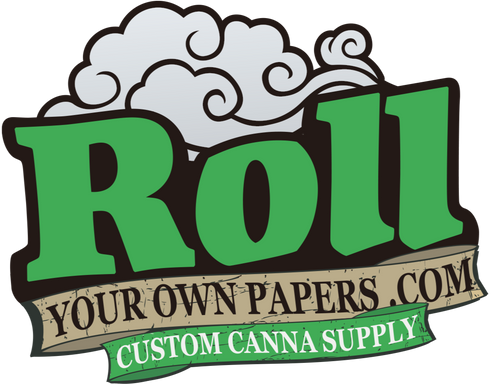
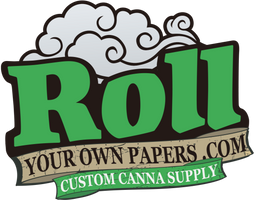
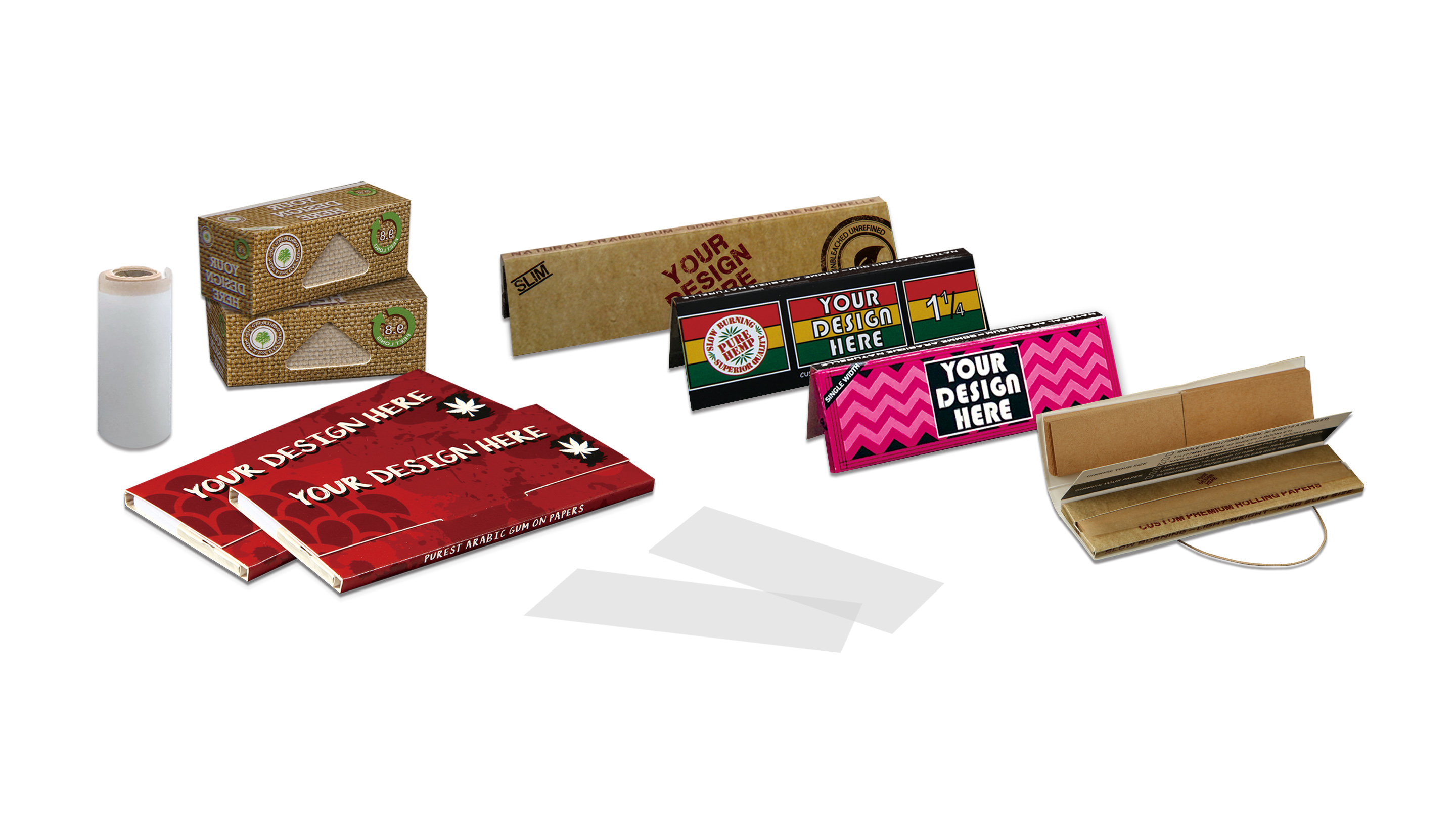
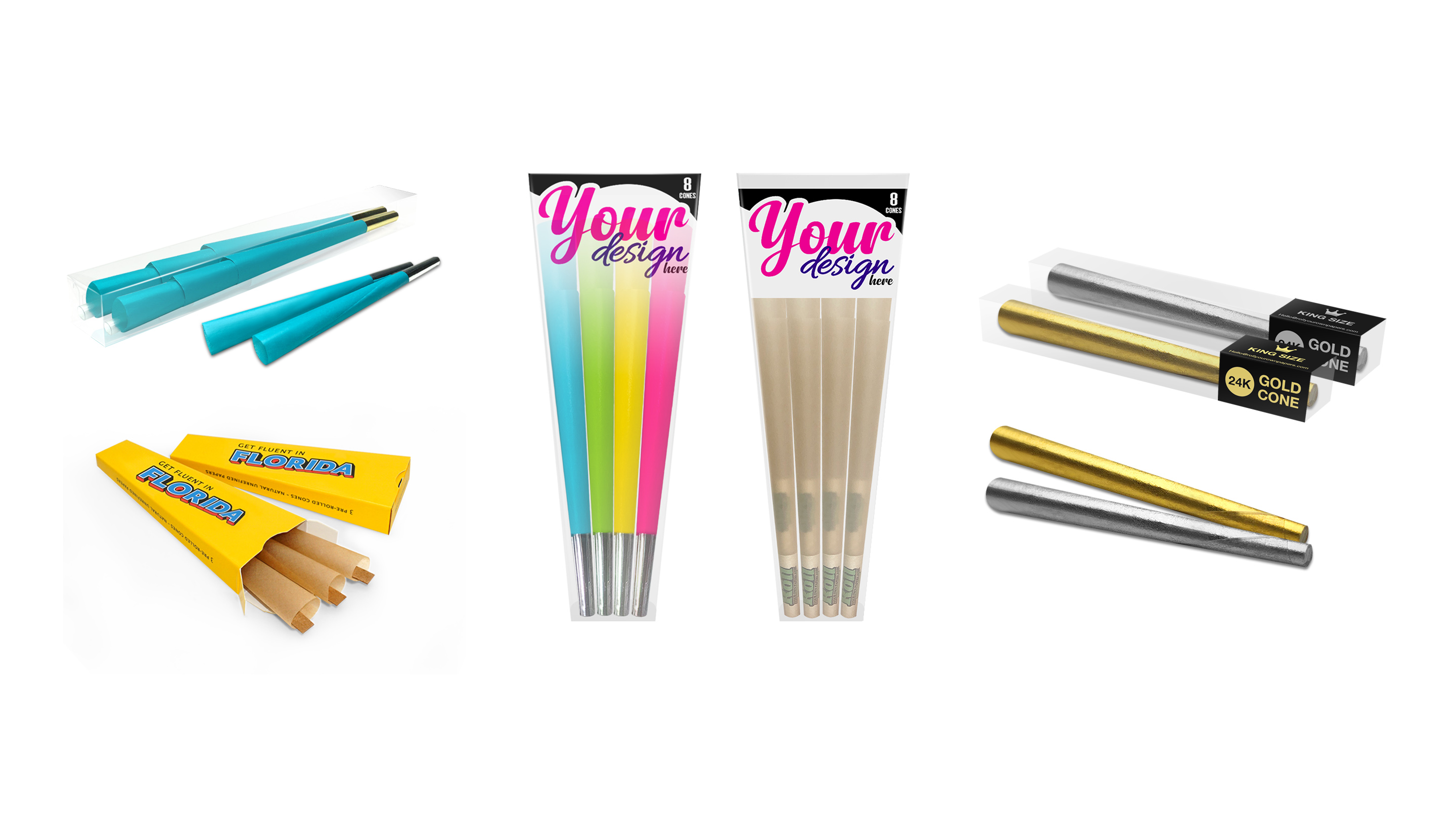
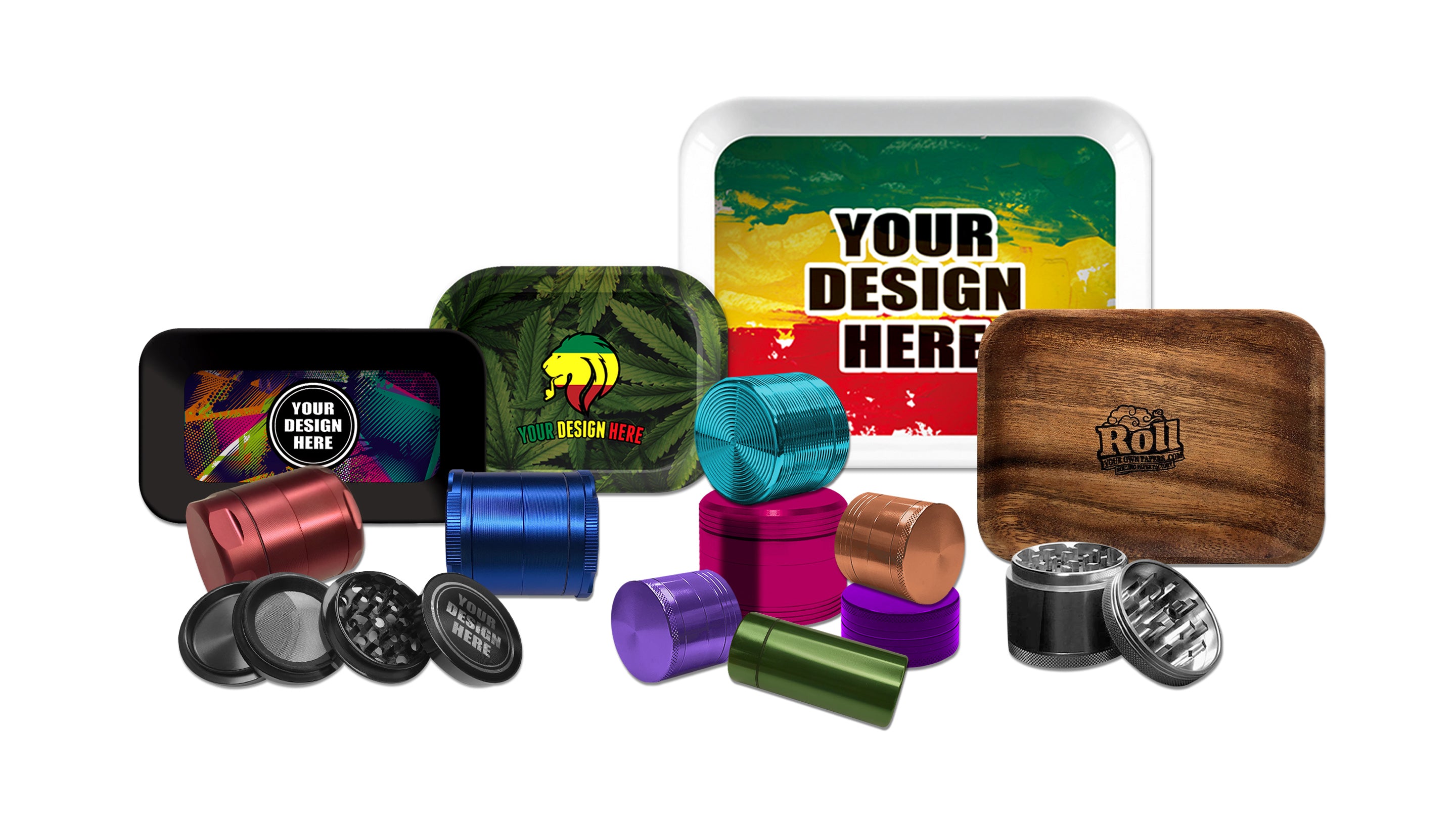
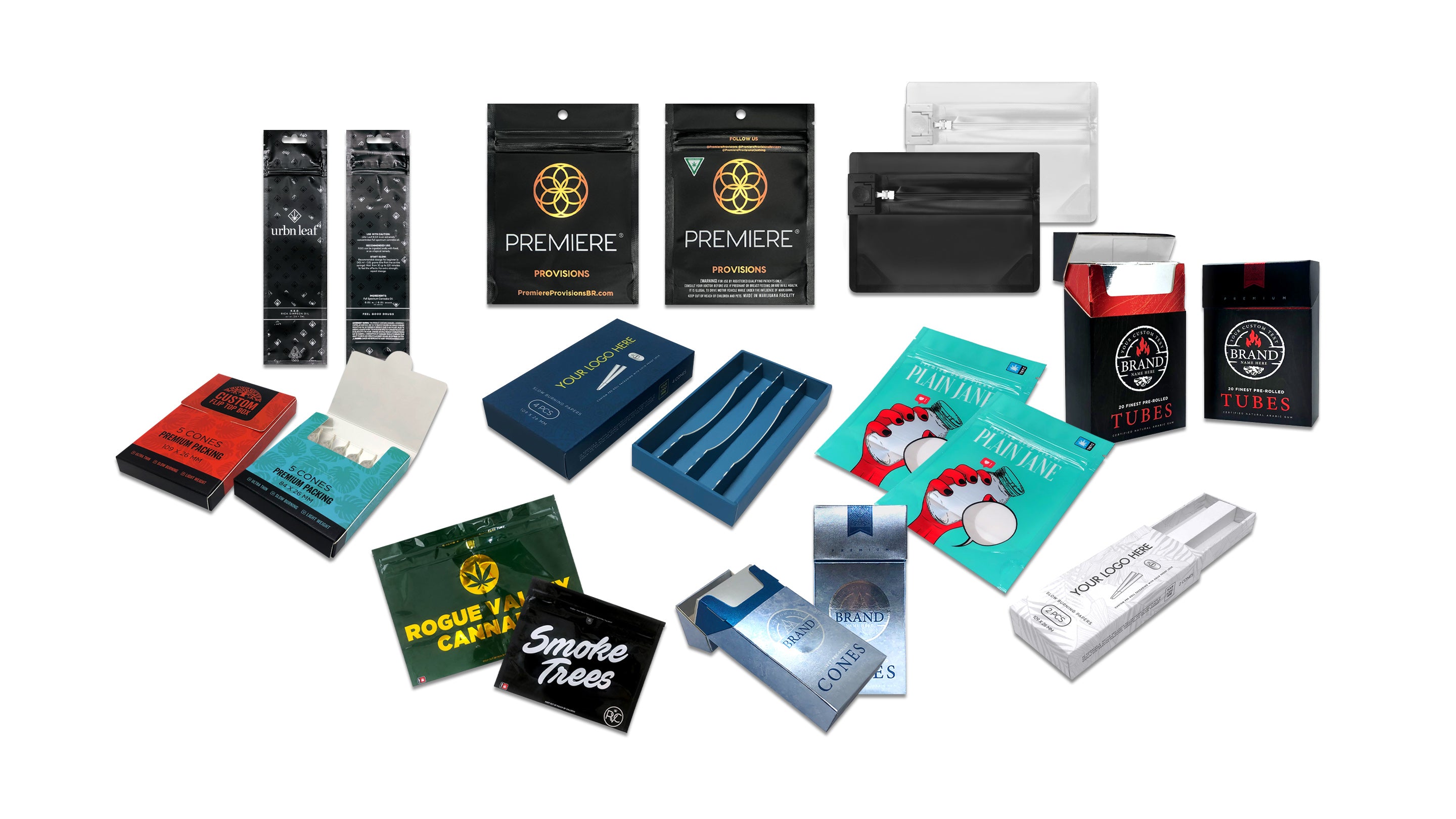
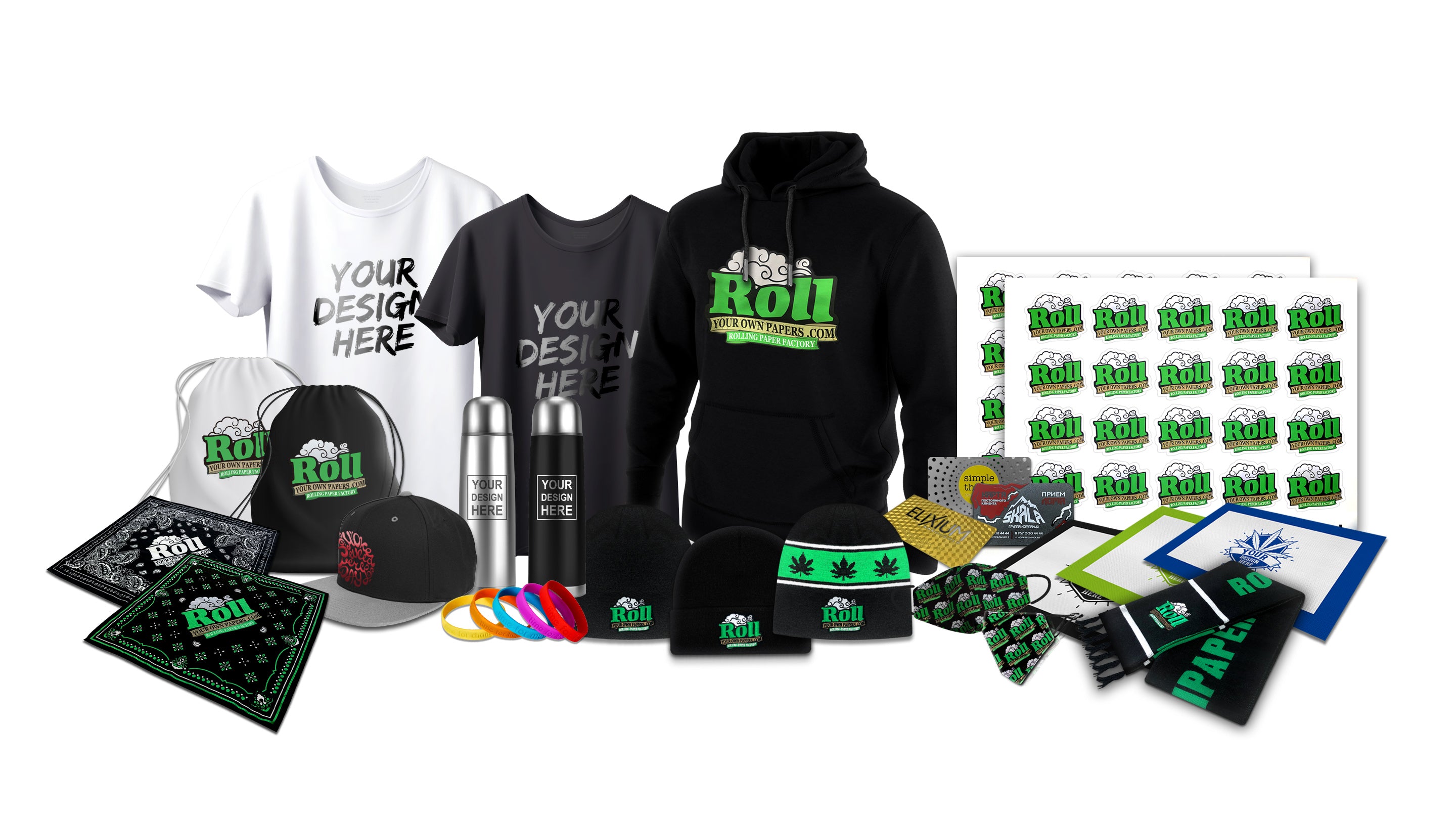
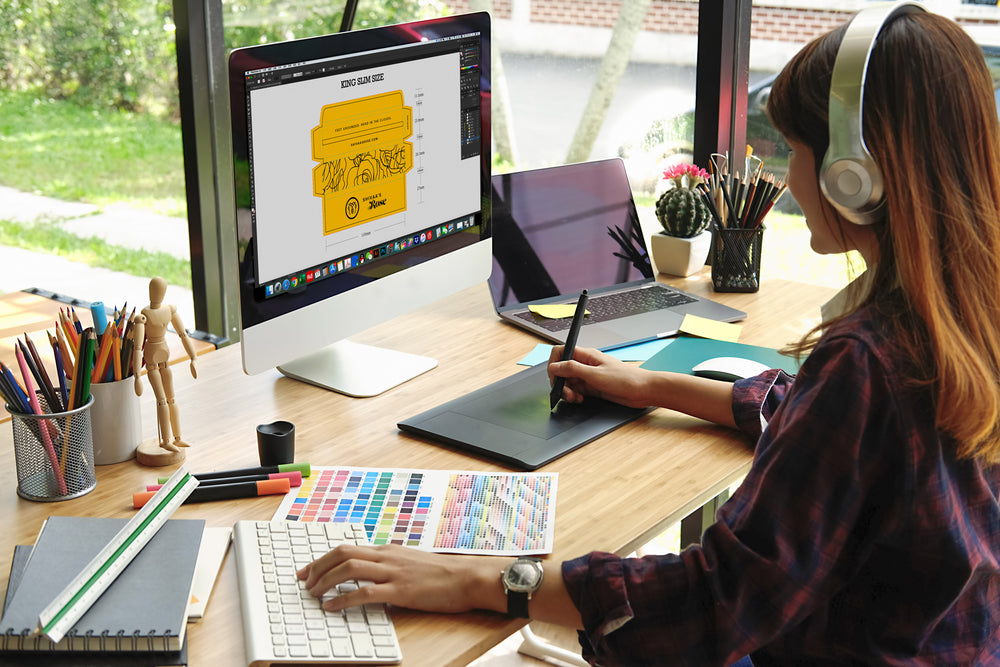



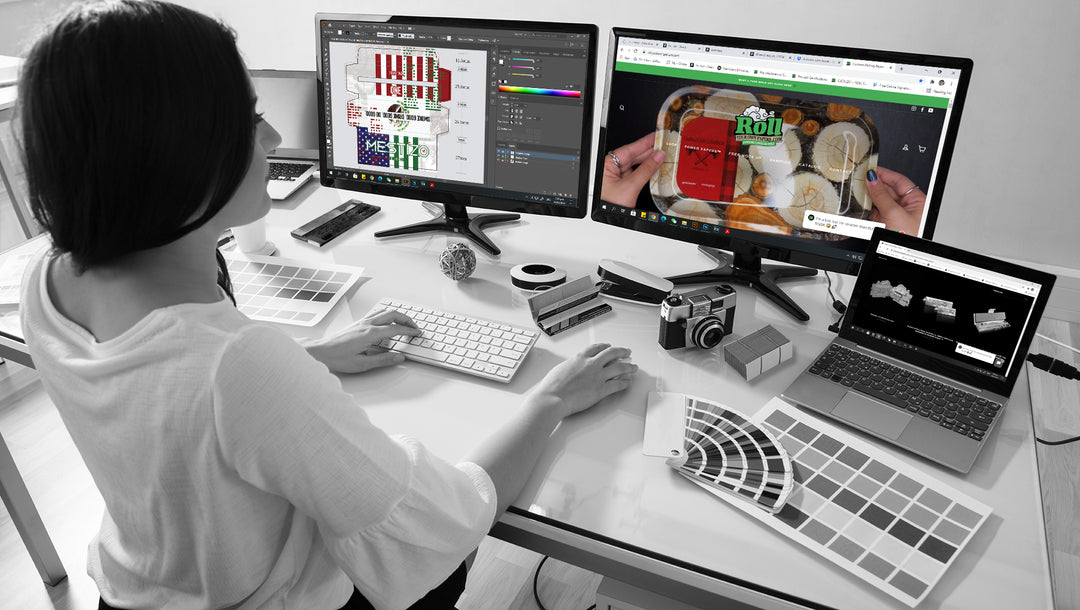


Leave a comment